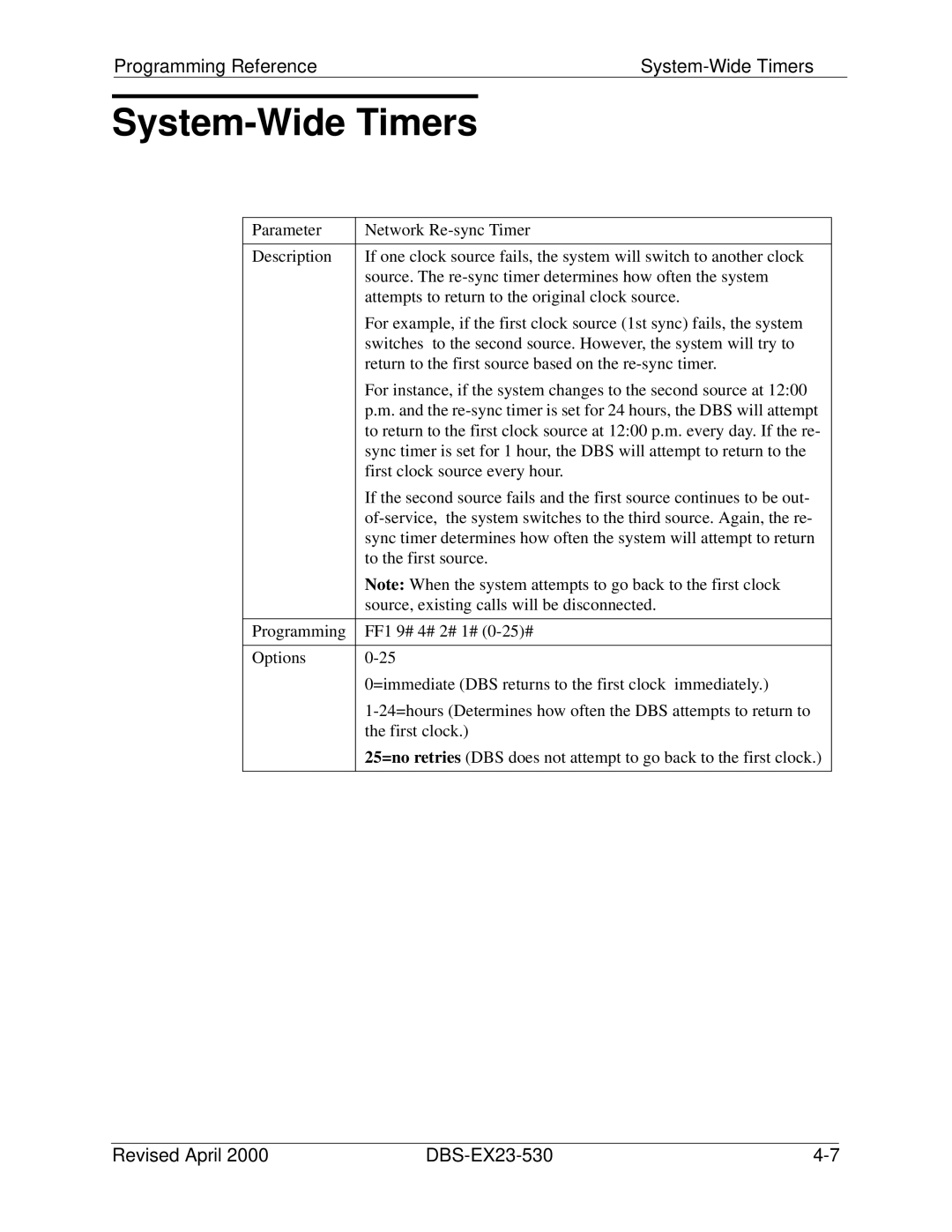Programming Reference |
|
System-Wide Timers
Parameter | Network |
|
|
Description | If one clock source fails, the system will switch to another clock |
| source. The |
| attempts to return to the original clock source. |
| For example, if the first clock source (1st sync) fails, the system |
| switches to the second source. However, the system will try to |
| return to the first source based on the |
| For instance, if the system changes to the second source at 12:00 |
| p.m. and the |
| to return to the first clock source at 12:00 p.m. every day. If the re- |
| sync timer is set for 1 hour, the DBS will attempt to return to the |
| first clock source every hour. |
| If the second source fails and the first source continues to be out- |
| |
| sync timer determines how often the system will attempt to return |
| to the first source. |
| Note: When the system attempts to go back to the first clock |
| source, existing calls will be disconnected. |
|
|
Programming | FF1 9# 4# 2# 1# |
|
|
Options | |
| 0=immediate (DBS returns to the first clock immediately.) |
| |
| the first clock.) |
| 25=no retries (DBS does not attempt to go back to the first clock.) |
|
|
Revised April 2000 |
